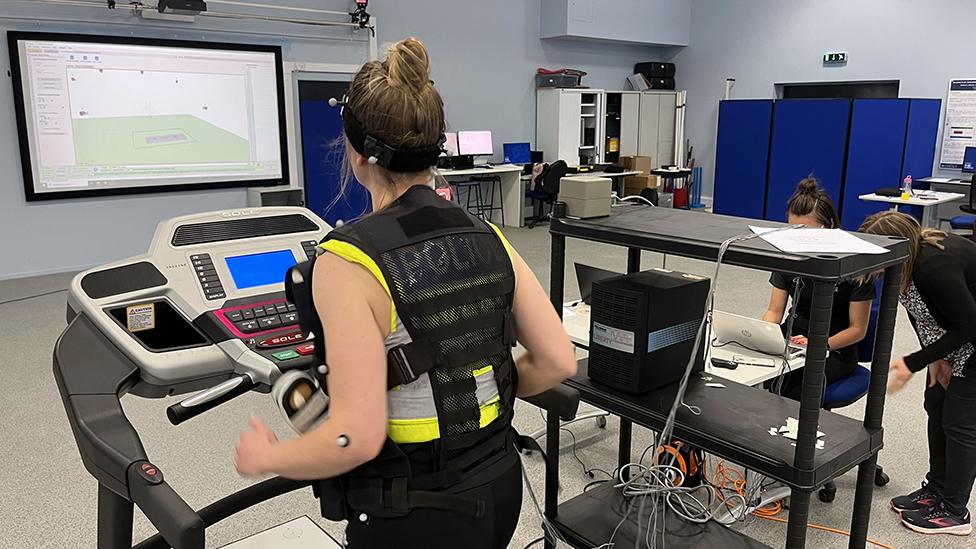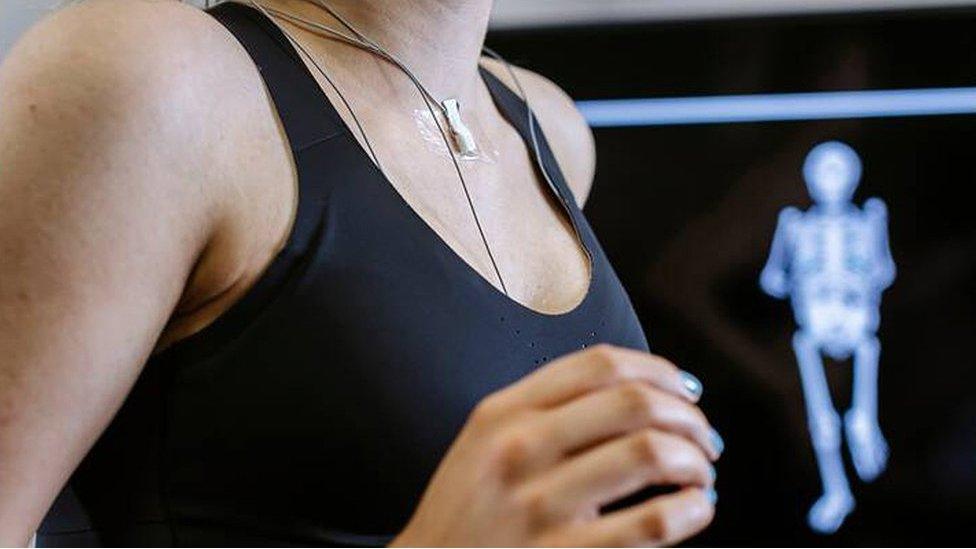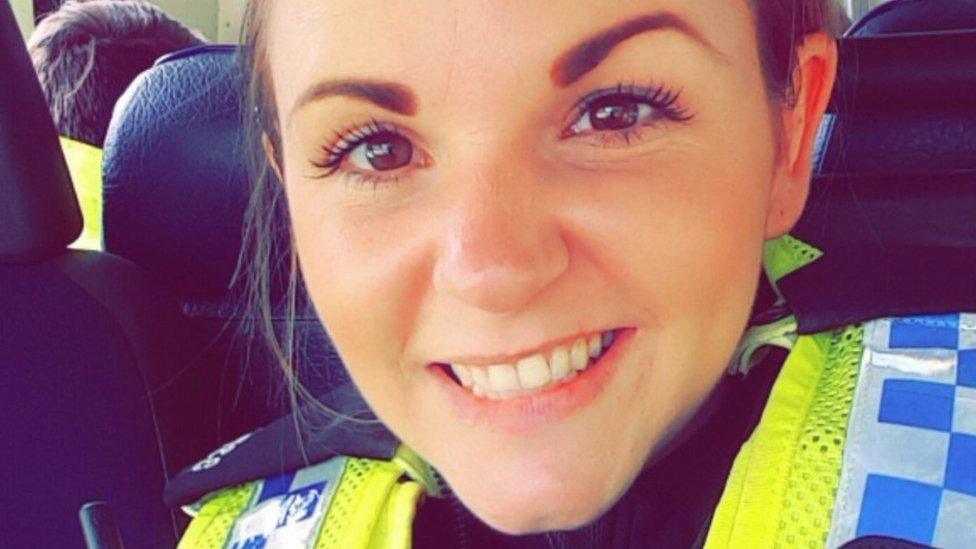Study examines impact of police body armour on breast health
- Published

Officers who volunteer will be filmed with motion capture cameras at the University of Lincoln
A new study is examining how police body armour affects the breast health of female officers.
Academics in Lincoln and Portsmouth are working with the National Police Wellbeing Service (NPWS) to develop a training programme to tackle issues faced by women in the force.
It will cover breast pain, support and bra issues as well as evaluating the impact of PPE on breast health.
Dr Jenny Burbage said officers faced extra risks without the right support.
The project, aimed at improving the experience of 50,000 female frontline staff, was launched after feedback which said body armour could cause pain when worn for long periods.
Dr Burbage, from the University of Portsmouth's Research Group in Breast Health, said: "Police activity is physically demanding, with officers often having to perform strenuous activities, like running and self-defence.
"Without the right breast support, a female officer is restricted physically, mentally, and also at a greater risk of being injured because they're not properly fitted and protected."
'Risk of injury'
Dr Franky Mulloy, from the University of Lincoln, said: "There's a clear need for large-scale research to identify what's causing discomfort whilst wearing PPE, and to use these findings to modify the existing tactical vest design.
"More work is needed to determine how well the protective equipment interacts with different bras, breast sizes and shapes."

It is hoped the research will lead to advice on bra choices to avoid discomfort and injury while on duty
Although body armour used by forces in the UK has been redesigned to be lighter and more flexible with a female-specific version, not all forces have upgraded to the new kit.
Dr Burbage said that the team would also use volunteers to test the long-term suitability of wearing sports bras at work.
Recent studies suggested 17% of female officers wore them regularly.
"Our lab-based project will measure breast movement underneath the armour, and monitor how officers move with them on.
"We'll also check if any part of the body is exposed or at risk of injury because of this movement," she added.

Follow BBC East Yorkshire and Lincolnshire on Facebook, external, Twitter, external, and Instagram, external. Send your story ideas to yorkslincs.news@bbc.co.uk, external.
Related topics
- Published12 July 2019
